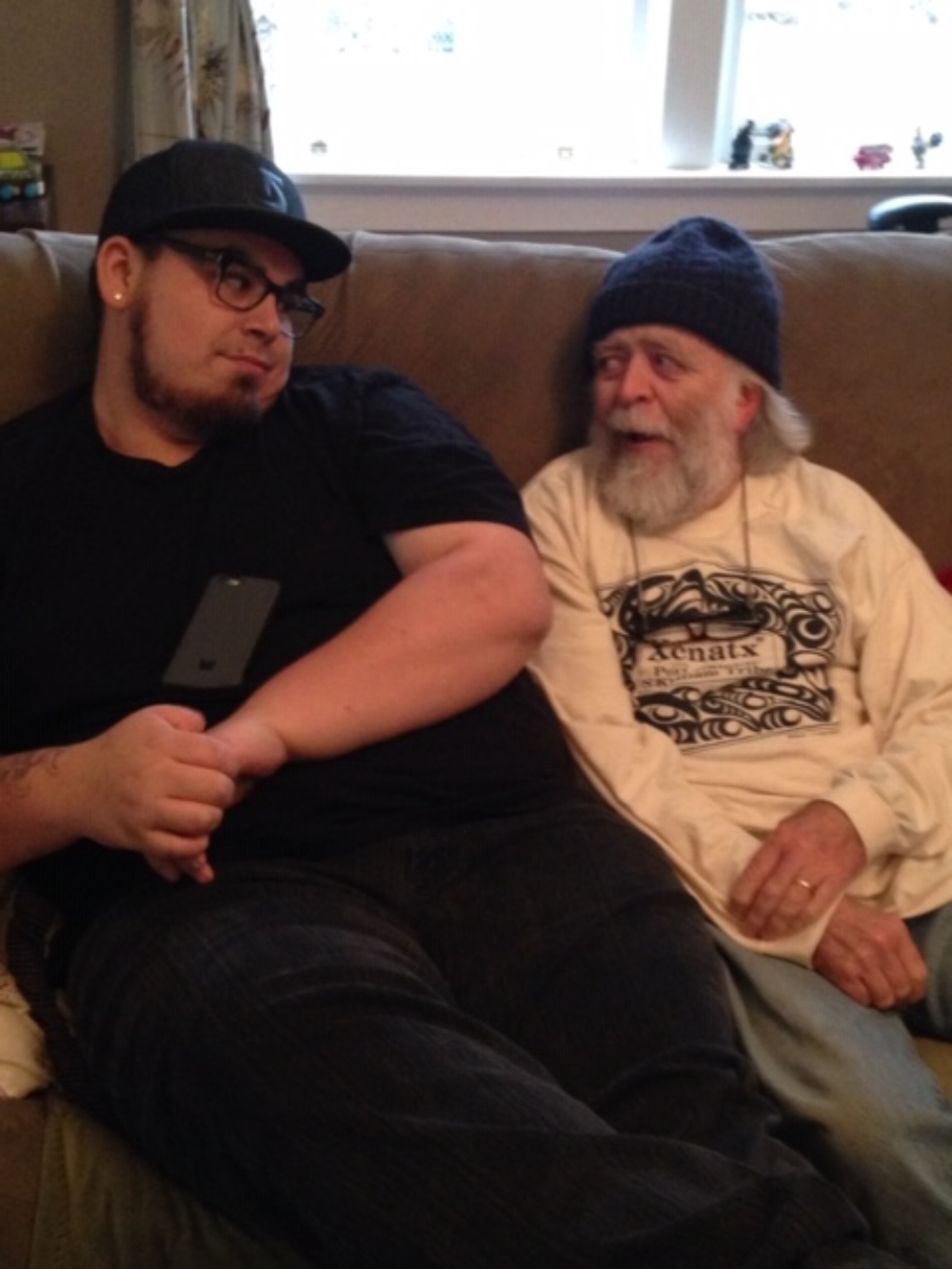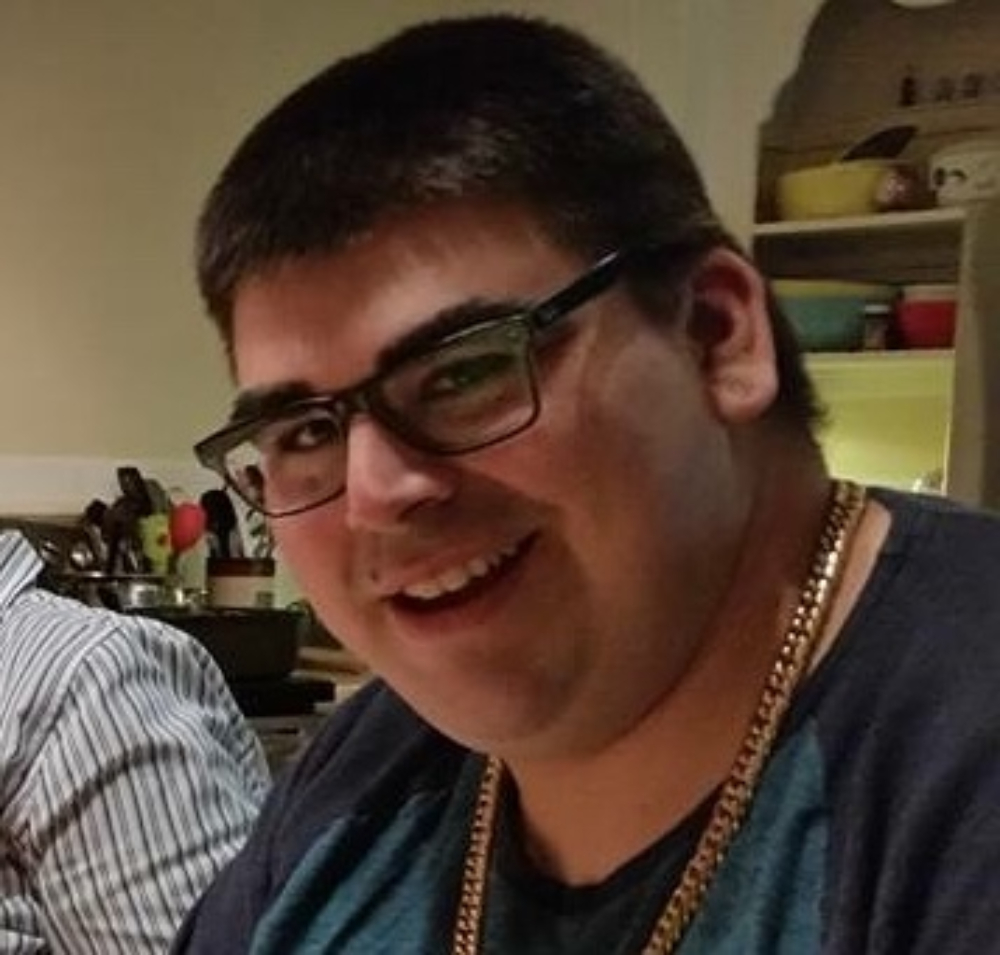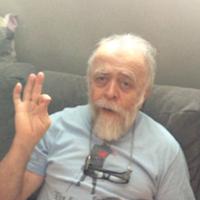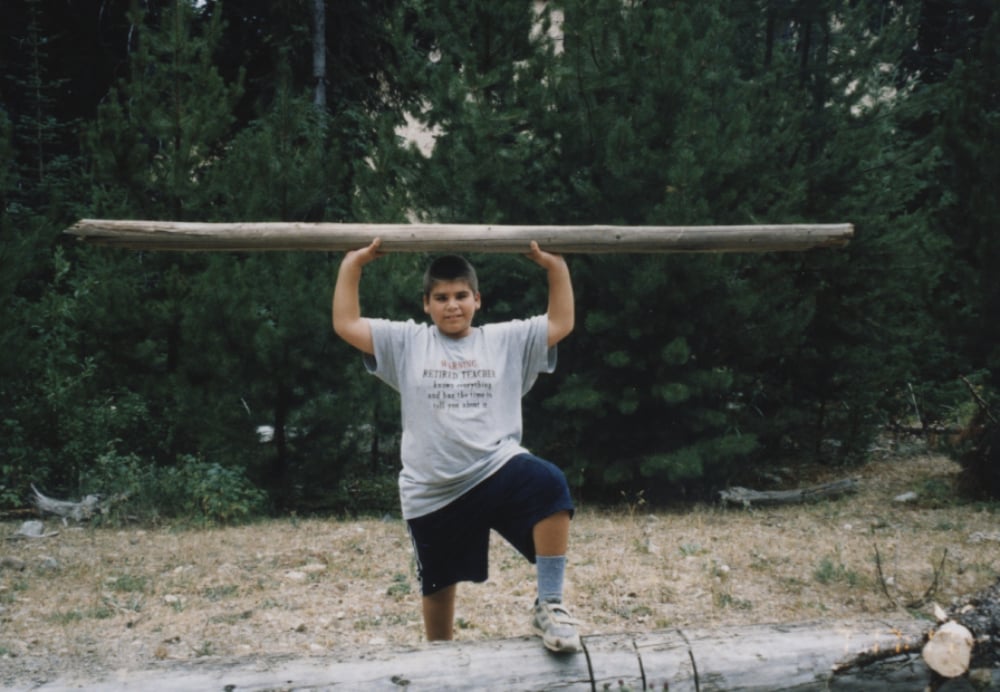“1-2-3-4... 1-2-3-4... 1-2-3-4...” repeated the voice on the other end of the 911 call. After the arduous task of moving my 400-pound grandson from his stomach onto his back, I did chest compressions in time with the voice. I vividly recall the smell, both nauseating and sweet. There were sirens, and my peripheral vision noticed flashing lights.
“The ambulance is here. You’ll need to let them in now,” the voice told me.
I let the paramedics in, but as soon as they saw Derek they stopped and one said, “I’m sorry for your loss.”
“Fuck. Oh fuck,” was all I could say as I moved something from a chair and sat down.
Someone was asking me questions and typing answers. Then someone else asked questions. Everyone was sorry for my loss and I kept answering questions.
Birthdate was Sept. 6, 1993.
I found him lying on his stomach with his nose right where the blood on the carpet was.
His name was, is... I don’t know which to use. Derek Michael Michel.
He was my grandson.
This is the worst night of my life.
We later learned he’d been dead for two days when I found him. The coroner said it was a fentanyl overdose. He was using alone in his apartment.
The beginning
I first met Derek when he was eight. My ex-wife Sue and her partner, also Sue, had just moved in together and become Derek’s foster parents. I volunteered to watch Derek sometimes so they could be alone.
This turned out to be an incredible gift for me. The young boy not only had a quiet wisdom about him, but he was also a lot of fun to be with.
He could impersonate the turtle from The Master of Disguise, dance along with the silly opening of Austin Powers: International Man of Mystery and loved laughter. When our visit was over, it wasn’t long before I was asking when I could see him next.
One of my favourite memories of Derek is when he invited me over to their place to watch Terminator 2 on the DVD player in their new van. Derek had requested a DVD player in whatever vehicle they bought, so that’s what they did. That was a great day watching movies in the back seat of the van while it was parked in the driveway. Derek was always a blast to be with. Watching him play soccer, teaching his Grade 5 science class, walking and talking, eating out, working out and even watching him play video games were just some of the good times we shared. Most importantly, we realized how much we loved each other and how awesome it was to be together.
A boy who loved helping people
Derek was always able to see into the core of others. Usually, he was able to see the good in them.
On a trip to B.C.’s Interior, we stopped and spent a weekend with his uncle, aunt and family on the Seabird Island reserve of the Sto:lo people near Chilliwack. After spending time eating a lot and playing a great deal of badminton, we were given smoked salmon and dried fish for the road. As we drove away, nine-year-old Derek said, “They don’t see the world like other people do. Money is not that important to them.”
At home, I recall him being so proud that he could do handyperson stuff. Sue would cut the lawn for a neighbour, and Derek would follow behind her with a toy lawnmower. She would get him to help fix things around the house and brought him materials so he could build coffee tables when he was just 10. He would give the tables away or sell them.
Derek and his moms loved helping people. They would pack lunches and give them to folks who lived on the street. I remember when Derek was little, I gave him a handful of change (two of his hands full) to treat himself to whatever he wanted. Instead of getting anything for himself, he put all the coins into a large plastic dog, collecting money to fund Seeing Eye dogs for blind people. He wanted to help since his birth mom was blind and had a Seeing Eye dog.
When his birth mom was feeling insecure, Derek told her, “I believe in you, mom.” When a young autistic teen lost all his Lego moving from one foster home to another, Derek gave him his own extensive collection.
I recall one time in particular when a large group of us were getting together for dinner. I arrived from the kitchen, but there was no seat for me. Derek got up and found me a chair. Even then, Derek knew there had to be a place at the table for everyone.
Little matchmaker
If it weren’t for Derek, I wouldn’t be with my partner, Jane. I knew Derek before I knew Jane. He kept telling me about his awesome grandmother. She would live to be 200 because she was so healthy. She was the smartest person he knew. She made the best s’mores on Earth. There was nothing his Grandma Jane couldn’t do.
One day, while we were driving through a busy intersection, the usually quiet Derek shouted, “It’s Jane! Look. It’s Jane!
Meanwhile he was leaning over and honking the horn while he waved to her. Jane just kept on driving, oblivious to the excitement she had caused in my truck.
“She’s the nicest person I know,” Derek exclaimed.
Eventually I asked Jane out on a date. We hit it off and soon we were living together. One Christmas Day I proposed to her and Derek said, “Great! Now you’re my grandpa. That’s how it works.”
From then on, I was Grandpa Dave. I felt so proud to call Derek and his brother Mark my grandsons. Derek taught me it is love that matters.

Summer camp
As a child, Derek attended Whitecrow Village summer camps for families affected by fetal alcohol spectrum disorder, or FASD. As an adult, he became a counsellor at the camps, along with his brother.
Kids with FASD usually get kicked out of typical summer camps within a day or two at the longest. Low or no impulse control, along with poor social skills, makes life extremely difficult for them and those around them. But Whitecrow Village has adults with FASD who can engage the kids in activities while parents and caregivers get lessons on what FASD is and how to live with it.
At the end of each day, everyone joins in a sharing circle. At one circle, a 10-year-old girl shared that she enjoyed the day’s activities, “and especially being with my new best friend.... What’s the big guy’s name?”
It was Derek. I cry now when I imagine working at Whitecrow Village without him.
There’s no sugar allowed at camp as it tends to provide rocket fuel for impulsiveness. Naturally, on our long drive back home, Derek, Mark, their friend Kenny and I would stop at a pancake house to load up on breakfast treats with lots of maple syrup.
One year I guess Derek and Kenny had a bit too much sugar and they couldn’t stop saying funny, outrageous things. I don’t recall exactly what they were saying except they made me laugh so hard I couldn’t breathe. I had to pull off the highway and ask them to be quiet. They did their best to tone it down a bit so I was able to focus for the rest of the trip. No one died from laughter that day.
Making the world a better place
During the B.C. provincial election in 2020, Derek and I did what we always did during elections: we volunteered for the NDP. Despite his FASD, which had made learning in school a huge struggle for him, Derek was aware of current events, politics and history. He learned through social media, online news, talking with people and reading books. He knew a lot more about politics than most people and he wanted to contribute.
One day when we were driving to deliver signs, he reflected, “It doesn’t get better than this. We get to spend all this time together and we’re helping to make the world a better place.”
I remember that so clearly and it saddens me that we won’t be able to do it anymore.

Spirituality was a big part of Derek’s life. He had started attending Alcoholics Anonymous meetings as a toddler with his birth mom and at just nine-years-old, he spoke at a meeting for the first time.
It was a meeting just after Christmas, and he had sat silently as people talked about the holidays and alcoholism. Near the end of the meeting, Derek shared that he had seen lots of alcohol abuse in his home growing up, “But then Sue and Sue found me, and this year Christmas is a lot better.”
After the meeting, he and his moms drove around on a Christmas lights tour and he spoke a now famous line in the family: “Look at all the blinkely lights.”
A lasting loneliness
When Derek was still young, he told me he believed in Creator, not God. When he was older, he was able to verbalize his dislike for Christianity because of what it had done to “his people.” He always tried to live by 12-step program principles, including belief in a higher power.
He eventually decided Buddhism was for him. He had two tattoos. One was his first clean date on the back of his shoulders and the other was a Buddha on his forearm. Every time I see a Buddha, I feel Derek.
When Derek was in active addiction, he caused lots of harm to himself. His record collection worth several thousands of dollars was gone, as was nearly every valuable thing he owned. His apartment was filled with empty bottles and needles instead of music equipment. I wish he could have been as kind to himself as he was to others. To paraphrase Robert Burns: “What a gift it is to see ourselves as others see us.” I saw Derek as a messenger of God.
I am fortunate that I know life carries on in spirit. Sue told me her medium friend had communicated with Derek. He said he didn’t mean to die. His heart just stopped beating and then he met all these people on the other side who loved him.
Although it gives me comfort to know Derek is OK in the spirit world, I have joined a group called Moms Stop the Harm. I can talk about my loss in a group that understands exactly what I’m going through, and I can work on advocacy so others won’t have to go through this.
I am sending emails to try to prompt federal government action. I go to my neighbours’ doors to ask them to sign a petition to treat the overdose crisis as a health emergency instead of a criminal problem. While I do this, I know Derek is with me in spirit, but I can’t help the lonely feeling I get when I realize I can’t hug him. ![]()
Read more: Indigenous, Health, Rights + Justice

















Tyee Commenting Guidelines
Comments that violate guidelines risk being deleted, and violations may result in a temporary or permanent user ban. Maintain the spirit of good conversation to stay in the discussion.
*Please note The Tyee is not a forum for spreading misinformation about COVID-19, denying its existence or minimizing its risk to public health.
Do:
Do not: